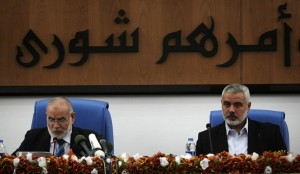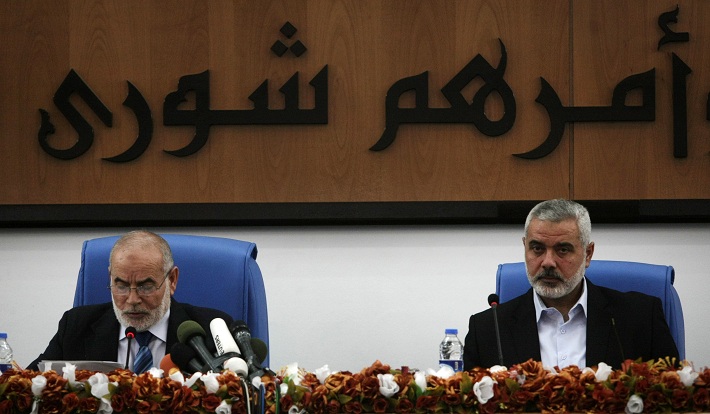
AFP PHOTO / MAHMUD HAMS
Ismail Haniyah, a senior political leader of the Hamas government in Gaza, announced on Sunday that he was appointing seven new ministers.
Haniyah said in a statement that these changes are merely “a natural procedure considering that some of these ministers have been in the office for over six years.” Referring to the effect of the Arab Spring on Palestine, he said “This shuffle will give us an opportunity to deal with these changes.”
The plan is to replace the ministers of health, public works, Islamic endowments, justice, local governance, agriculture, finance and the deputy prime minister. Haniyah is also creating two new ministries.
Dr. Yousef Rizka, a political advisor to Haniyah, said “that the changes were made to resolve issues that the previous government failed to handle.” Rizka also said that some of the outgoing ministers “insisted on leaving their posts after they felt exhausted and due to their inability to face problems.”
The move was approved in a partial meeting of the Palestinian parliament, the Palestinian Legislative Authority, in which only Hamas members of the body were able to attend. The parliament has been unable to operate properly since the turmoil following the 2006 Palestinian elections. Inter-party violence following a Hamas victory led to the West Bank and Gaza to be ruled by two separate entities. Gaza has been under a blockade from Israel and Egypt since 2007 due to Israel refusing to recognise its Hamas-led government.
Haniyah said that these changes will not compromise the reconciliation efforts, adding that the Cabinet reshuffle has been postponed several times in order to ease reconciliation talks.
Both Ismail Haniyah, and his rival Salam Fayad, of the West Bank-ruling party Fatah, claim to be prime minister of the Palestinian Authority, with jurisdiction over the whole of the occupied territories.
Egypt mediated reconciliation talks between Fatah and Hamas in Cairo in 2011 which eventually led to the signature of reconciliation agreements. Another reconciliation agreement was signed in Doha in 2012, but a unity government is yet to be formed.
